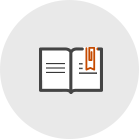
- Research on the eco-friendly agricultural input Industry and Policy Recommendations
-
-
Background and Purpose
○ The world, including Korea, is shifting toward sustainable agriculture. Globally, the U.N.’s Sustainable Development Goals (SDGs) and the European Green Deal pay attention to reducing agricultural production’s negative impacts to improve the environment, guarantee economic returns, and nurture sustainable farming. To respond external changes, Korean government also converted its policy goals from improving competitiveness to enhancing sustainability. The trend toward sustainability is likely to increase the demand for eco-friendly agricultural materials. However, the eco-friendly agro-material sector face challenges, limiting the industry’s growth and sustainability policy execution.
○ This research aims to identify policy tasks related to eco-friendly agro-materials to respond to social demand for sustainable farming. For the purpose, we carried out the following: I) reviewing the production and distribution of eco-friendly agro-materials, II) understanding the public’s perception of eco-friendly materials, the state of their use, and impacts, III) finding the sector’s characteristics and problems, and IV) analyzing the industry at home and abroad and related policies.
Research Methodology
○ First of all, the research started with a literature review. To understand the scope, state, and external conditions of the eco-friendly agro-material industry, we analyzed literature, regulations, and the government policies concerning the definition, criteria, merits/ demerits, and corporate/ government measures related to eco-friendly agro-materials. Also, we carried out advisory meetings composed of policymakers, stakeholders, and experts, and target group interviews to understand the state of production, distribution, and usage, and related issues to improve.
○ Our surveys targeted production firms, farmers—eco-friendly and traditional—to ask overall questions on the industry. The questions were made based on the result of the advisory meeting and target group interviews mentioned above. We requested Korea Enterprise Data to survey production firms. To analyze the sector’s growth and decline, we carried out the metafrontier sales efficiency analysis using production firms’ financial data. Also, we inspected rice farmers’ use of byproduct fertilizers and their impact on rice production based on the agricultural production cost data.
○ Finally, we asked external experts to research overseas industrial trends and policies in major countries and international organizations.
(For more information, please refer to the report.) -
목차
-
제1장 서론
제2장 친환경농자재 범위와 구조
제3장 친환경농자재 산업의 실태와 문제점
제4장 친환경농자재 관련 정책 현황
제5장 해외 친환경농자재 산업 및 관련 정책
제6장 친환경농자재 산업 활성화를 위한 정책과제
요약문
Background and Purpose
○ The world, including Korea, is shifting toward sustainable agriculture. Globally, the U.N.’s Sustainable Development Goals (SDGs) and the European Green Deal pay attention to reducing agricultural production’s negative impacts to improve the environment, guarantee economic returns, and nurture sustainable farming. To respond external changes, Korean government also converted its policy goals from improving competitiveness to enhancing sustainability. The trend toward sustainability is likely to increase the demand for eco-friendly agricultural materials. However, the eco-friendly agro-material sector face challenges, limiting the industry’s growth and sustainability policy execution.
○ This research aims to identify policy tasks related to eco-friendly agro-materials to respond to social demand for sustainable farming. For the purpose, we carried out the following: I) reviewing the production and distribution of eco-friendly agro-materials, II) understanding the public’s perception of eco-friendly materials, the state of their use, and impacts, III) finding the sector’s characteristics and problems, and IV) analyzing the industry at home and abroad and related policies.
Research Methodology
○ First of all, the research started with a literature review. To understand the scope, state, and external conditions of the eco-friendly agro-material industry, we analyzed literature, regulations, and the government policies concerning the definition, criteria, merits/ demerits, and corporate/ government measures related to eco-friendly agro-materials. Also, we carried out advisory meetings composed of policymakers, stakeholders, and experts, and target group interviews to understand the state of production, distribution, and usage, and related issues to improve.
○ Our surveys targeted production firms, farmers—eco-friendly and traditional—to ask overall questions on the industry. The questions were made based on the result of the advisory meeting and target group interviews mentioned above. We requested Korea Enterprise Data to survey production firms. To analyze the sector’s growth and decline, we carried out the metafrontier sales efficiency analysis using production firms’ financial data. Also, we inspected rice farmers’ use of byproduct fertilizers and their impact on rice production based on the agricultural production cost data.
○ Finally, we asked external experts to research overseas industrial trends and policies in major countries and international organizations.
(For more information, please refer to the report.)저자정보
저자에게 문의
구매안내
KREI의 출판물은 판매 대행사 (정부간행물판매센터)와 아래 서점에서 구입 하실 수 있습니다.
판매대행사
- (주)정부간행물판매센터http://www.gpcbooks.co.kr사이트 바로가기
- 서울특별시 중구태평로 1가 25번지
- TEL 02) 394-0337, 734-6818
- FAX 02) 394-0339
판매서점
판매서점 교보문고 http://www.kyobobook.co.kr/ 영풍문고 http://www.ypbooks.co.kr/ 알라딘 http://www.aladin.co.kr/ 활용도 정보
활용도 정보 상세정보 조회 좋아요 다운로드 스크랩 SNS공유 52529 3 975 0 4 - 같은 분야 보고서가 없습니다.
- 같은 분야 인기 보고서가 없습니다.
의견남기기
-


